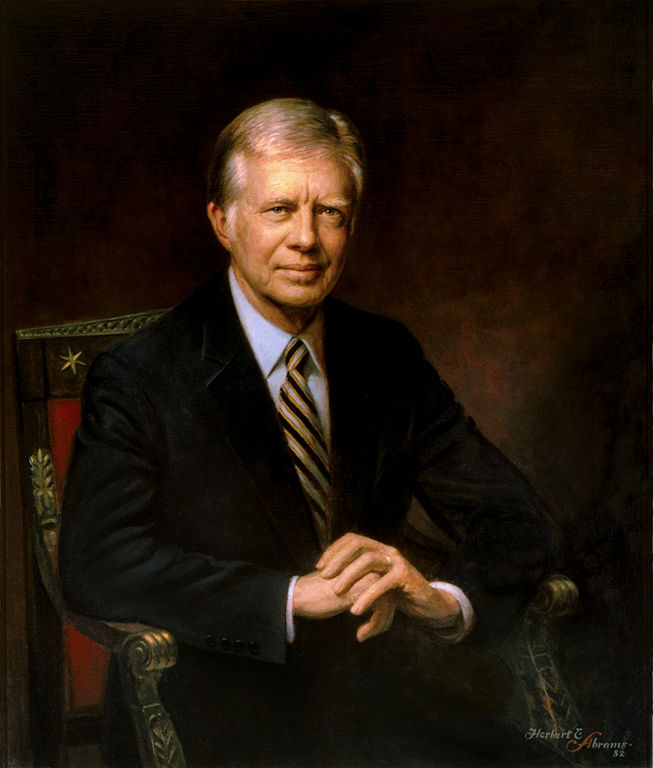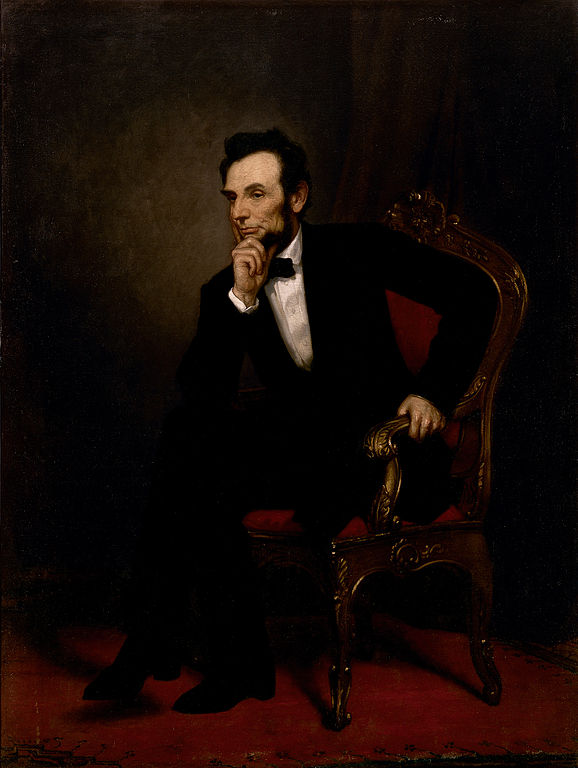Just as singers have tried to double as actors and celebrities as human rights advocates, presidents as poets should be one of those ventures left untouched. Some of our most beloved U.S. presidents have tried their hand in poetry at one point in their lives, some only to be told they were better suited for politics (if even that). Take a look at some of their work, along with suggested poets who probably do a better job than our Commanders in Chief.
George Washington
Who better to set the trend for poetic presidents than the first president himself? George Washington has only two surviving poems, which were rumored to either be written in 1748 or transcribed the same year from a now unknown book of poetry, but nevertheless, Washington proved to be a romantic. Scholars who believed the poetry to be authored by the president theorize it was about a woman named Frances Alexander, whom he was infatuated with in his boyhood. Published in the Library of Congress, the surviving manuscript features an unfinished acrostic poem that screams teenage boy in lust. For fans of acrostic poetry, Edgar Allen Poe wrote an ode to Letitia Elizabeth Landon in his poem Elizabeth.
James Madison
James Madison's career as a poet was a brief stint in his undergraduate days in college (much like president Barack Obama), and the poem "A Poem against the Tories" held a simple rhyme scheme of aa, bb, cc and then trails off into the unknown. Madison's poems are recorded in a notebook owned at the time by English Separatist William Bradford that contain many satirical pieces from the American Whig Society. Philip Freneau was an American poet, often called the poet of the American Revolution who might save readers of this historic period a headache by reading his works instead.
John Quincy Adams
John Quincy Adams wrote a long poem entitled "Dermot MacMorrogh or the Conquest of Ireland," which was met with unfavorable reviews, and sadly did not catapult the president into the league of great poets as he had always wished for himself. He even translated poems into English, including the epic Oberon, which did nothing for his career. Ralph Waldo Emerson however included "The Wants of Man" by John Quincy Adams in his collection of favorite poetry entitled Parnassus. Perhaps those interested in Emerson's taste in poetry would like to take a gander.
Jimmy Carter
Harold Bloom, sterling professor of the humanities and English at Yale University was quoted as having said Carter was "literally the worst poet in the United States". Why you ask? His published collection Always a Reckoning was reviewed by New York Times book reviewer Michiko Kakutani, which described the author as "a mediocre poet," even if they were well intended. One review claims that his style is similar to that of Robert Frost, even if the poems are lacking in depth. Fans of Frost may want to read the presidents poetry and see how it measures up...
Abraham Lincoln
Abraham Lincoln was one of the more interesting presidents to dabble in poetry. While all the listed men were known to be avid readers of poetry, Lincoln expressed an interest in mimicking the art from the ripe age of fifteen. His first noted poems were transcribed on his arithmetic notebook in elementary school, and are characterized by a darker theme than the other presidents. Jealousy, revenge, and "crude, satirical verses" were the highlight of Lincoln's work, and some of the only poems not heavily scrutinized by reviewers. Many of Lincoln's neighbors of the time remember reciting his poetry aloud, and claimed more people remembered bits and pieces of his poems than passages from the bible. Letitia Elizabeth Landon wrote a poem entitled "Revenge," which could be an interesting parallel to Lincoln's poetry.
Thomas Jefferson
Thomas Jefferson has one remaining manuscript of a poem that has been debated by scholars on the authenticity of its composition by the president. There is evidence that two poems were in circulation during Jefferson's time that mirrored the poem published under Jefferson's name. Additions to the poem were made on his death bed and the only significant change is the use of the name Ellen instead of Maria, and the melding of these two poems into one longer piece. Plagiarism doesn't seem to be Jefferson's vice, as the poem was circulated by only those in the family after his death. At that Hour by James Joyce is one of those lasting poems on human life and death that pays homage to the theme of Jefferson's "A Death-bed Adieu".
John Tyler
Lastly, there is John Tyler, a man who expressed his happiness and sorrows through poetry. Robert Seagar, biographer of John Tyler, claimed that the president was courting his second wife Julia Gardiner in 1843 during the time of his most praised works, which he composed right before their marriage and revised during their honeymoon where it was set to music. Tyler's poetry continued through stressful periods in his life, including the death of his three-month old daughter Anne and his resignation from the senate in 1836. It was not a public spectacle by any means, but Tyler's poetry continued to shape his private life and those in his circle for many years. Poems of perseverance after loss are a staple of Emily Dickinson and might be considered by Tyler fans.
Credit: Wikipedia Commons
Written by Alta Swyers












 A Black Balloon Publication ©
A Black Balloon Publication ©